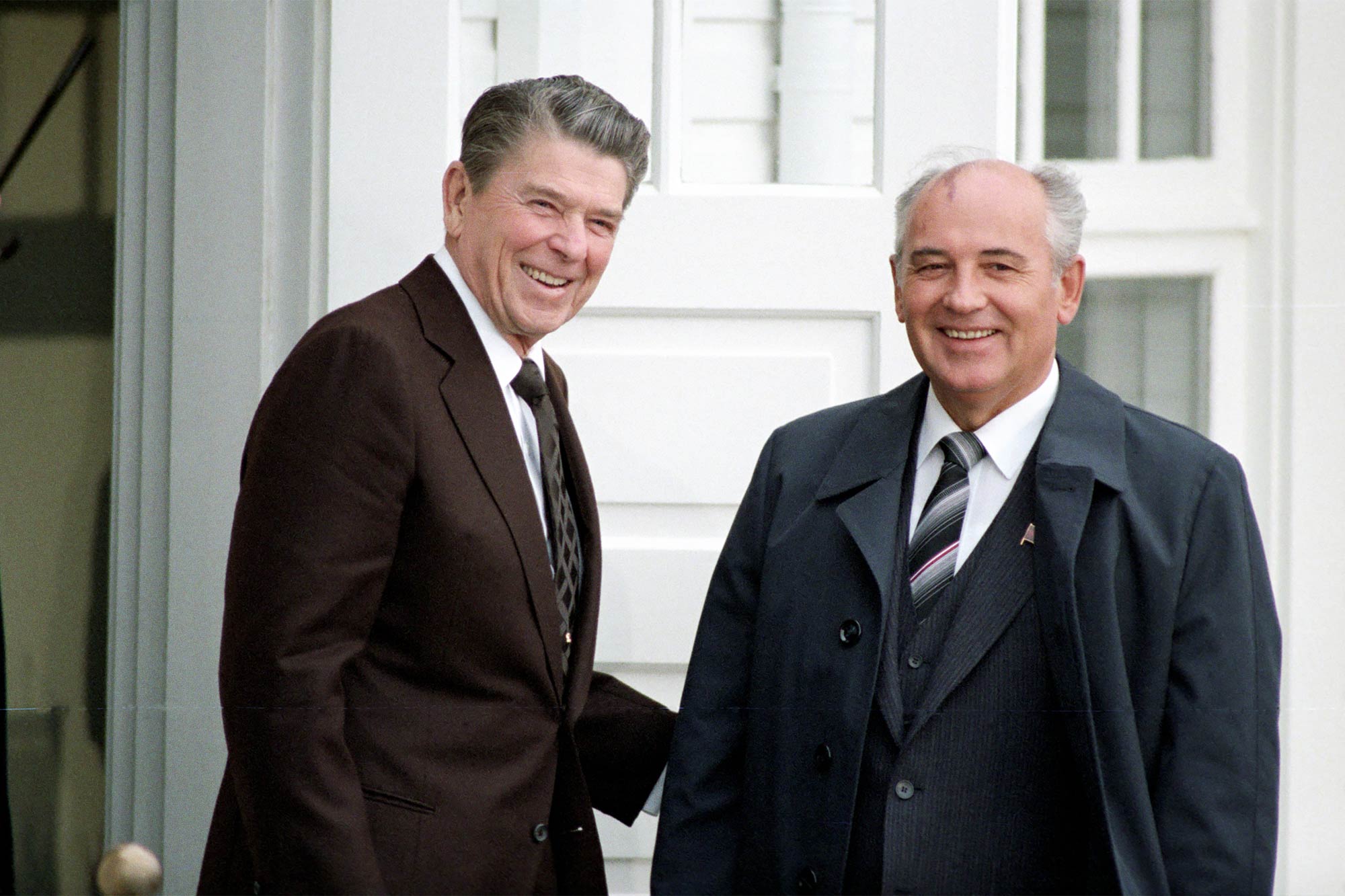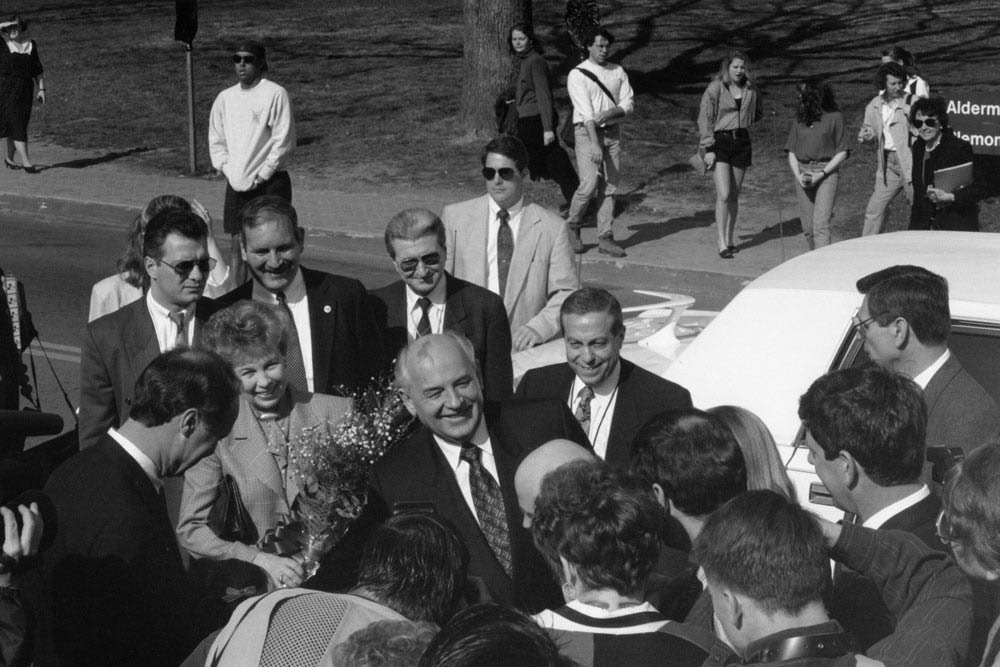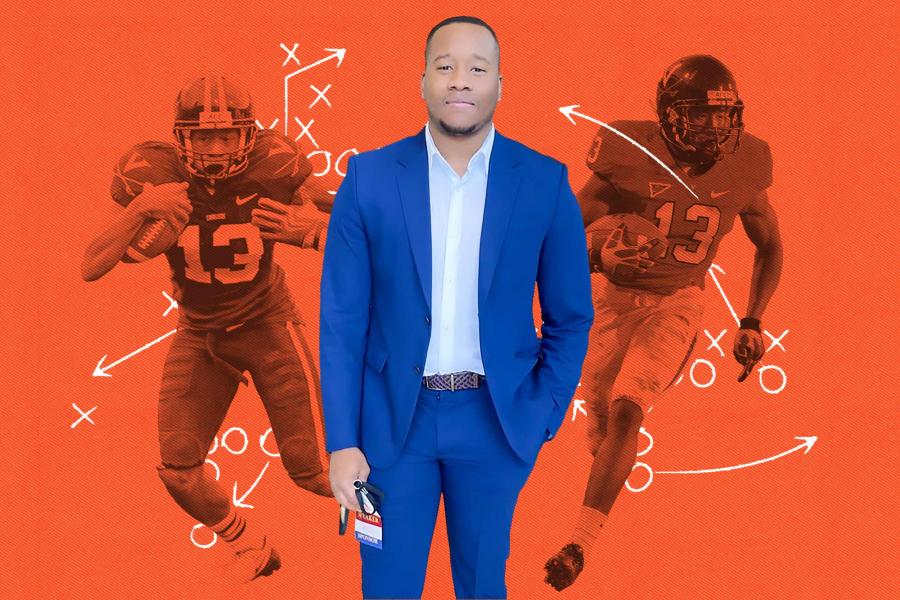On Tuesday evening at the University of Virginia, Russia expert Allen Lynch was teaching an intimate seminar called “U.S.-Russian Relations in the Post-Soviet Era,” when his students gasped.
“I actually learned in the middle of a seminar last night that Mikhail Gorbachev had died, because I had something from the web up on the screen and it was live from the net,” he said. “And my students gasped because it said Gorbachev had just died.
“So I was able to quickly find some video from the Berlin Wall period showing Gorbachev and explaining what was going on. It made a big impact on the students,” he said.
That real-time teachable moment was perfectly suited to Lynch, a professor of politics who directed UVA’s Center for Russian and East European studies from 1993 to 2008.
Knowing his expertise in Russia and the former Soviet bloc, UVA Today turned to him for his observations about the eighth and final leader of the Soviet Union, who died Tuesday evening at the age of 91 following a “long and grave illness,” as reported by Russia’s state news agencies.






